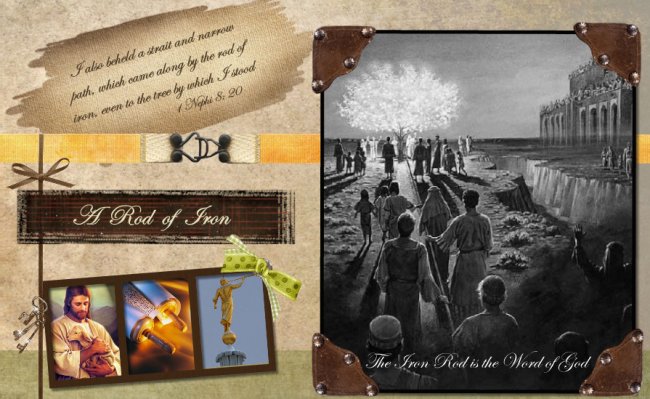Read Alma 42
I am behind already in my lesson posts. Because of this my current posting here will not be as in depth as I had hoped. This chapter in Alma is full of so many important references and insights and principles of the Plan of Happiness. It was for this reason that I didn't hastily post last week. I wanted to give the chapter a nice going over - now that I am starting to get too far behind I must move on and perhaps touch on this subject some more in the future.
In chapter 42 we find Alma continuing his lessons and counsel with Corianton. He will at the end of this discussion call Corianton to missionary work like Shiblon. It is important to note that in this chapter as well as chapters 40 and 41 Alma is able to use the power of discernment to see what Corianton needed to be taught.
Alma 40:1
1 Now my son, here is somewhat more I would say unto thee; for I perceive that thy mind is worried concerning the resurrection of the dead.
Alma 41:1
1 And now, my son, I have somewhat to say concerning the restoration of which has been spoken; for behold, some have wrested the scriptures, and have gone far astray because of this thing. And I perceive that thy mind has been worried also concerning this thing. But behold, I will explain it unto thee.
Alma 42:1
1 And now, my son, I perceive there is somewhat more which doth worry your mind, which ye cannot understand—which is concerning the justice of God in the punishment of the sinner; for ye do try to suppose that it is injustice that the sinner should be consigned to a state of misery.
Corianton was at a crossroads - he had already committed a grave sin and he was at the crossroads where he needed to decide if he was going to fully repent or try to justify his actions. Alma taught Corianton about the resurrection, judgement, accountability, and the purpose for this life, the meaning of the atonement, and the eternal nature of the consequences of our actions.
A lot of what is taught in this chapter follows a logical flow and is very similar to Lehi's teachings to Jacob before his death in 2 Nephi 2
Alma points out that the Fall of Adam was part of the plan from the foundation of the world. That because of the Fall we are all carnal and we have been given this life as a time set apart for us to learn and make mistakes and then repent.
We have agency and we are now mortal and spiritually separated from our Father, in other words spiritual and physical death.
7 And now, ye see by this that our first parents were cut off both temporally and spiritually from the presence of the Lord; and thus we see they became subjects to follow after their own will.
Now comes the part that is difficult for Corainton - he thinks it is unjust to be punished eternally for mistakes made in this life. Alma begins to teach about justice and mercy. Two eternal forces that are completely at odds with each other. How can God remain perfect by being just and at the same time show compassion by being merciful?
13 Therefore, according to justice, the plan of redemption could not be brought about, only on conditions of repentance of men in this probationary state, yea, this preparatory state; for except it were for these conditions, mercy could not take effect except it should destroy the work of justice. Now the work of justice could not be destroyed; if so, God would cease to be God.
Notice in the above referenced verse that justice must be brought about and the only thing that can stop it is repentance. How is that? How does repentance bring about mercy and fulfill justice's requirements?
15 And now, the plan of mercy could not be brought about except an atonement should be made; therefore God himself atoneth for the sins of the world, to bring about the plan of mercy, to appease the demands of justice, that God might be a perfect, just God, and a merciful God also.
In a nutshell Alma simply states that the plan of mercy comes about because of the atonement. That is why it is called the plan of redemption - to redeem something is to pay for it for a price. We are bought through his sacrifice that was infinite and eternal. So Christ paid the price for sin and justice is satisfied if we repent. Repentance is the price we pay to Christ for his redeeming sacrifice. That is the repayment plan if you will.
To answer Corianton's question further about eternal damnation Alma explains that we wouldn't need repentance if there was no punishment. However there is a punishment and the only reason for a punishment is if there are laws. Since there are laws there must be justice. Justice is eternal as the reward for those that partake in the plan of happiness/mercy/redemption is Eternal Life. The converse must be true as well that the reward for not choosing the plan is Eternal Damnation.
26 And thus God bringeth about his great and eternal purposes, which were prepared from the foundation of the world. And thus cometh about the salvation and the redemption of men, and also their destruction and misery.
Alma pleads with his son to take this lesson and make a change and to realize that he can't deny justice:
30 O my son, I desire that ye should deny the justice of God no more. Do not endeavor to excuse yourself in the least point because of your sins, by denying the justice of God; but do you let the justice of God, and his mercy, and his long-suffering have full sway in your heart; and let it bring you down to the dust in humility.
Please feel free to post comments and ask questions.








0 comments:
Post a Comment